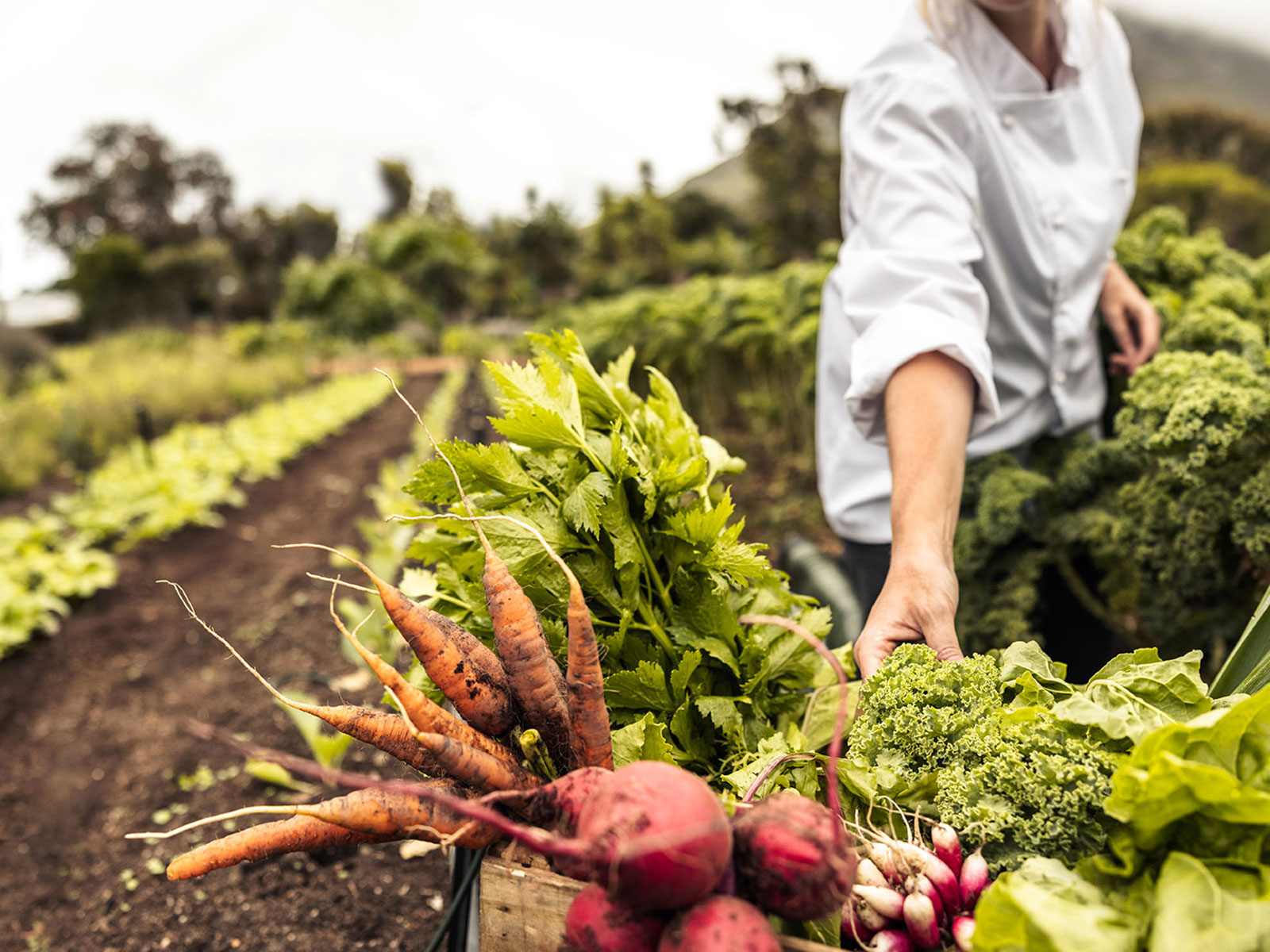Human rights are inherent to all human beings. They are defined and established in more than 80 international legal instruments and define the fundamental protections of human dignity, needs, and freedoms, such as food, housing, privacy, personal security, and democratic participation. Since the adoption of the Universal Declaration of Human Rights (UDHR) in 1948, the responsibility to protect human rights has primarily fallen on governments. Beginning in the early 2000s, however, it became increasingly clear that the freedoms enshrined in the framework could also be violated—and promoted—by the private sector.
In 2011, the UN Human Rights Council unanimously endorsed the UN Guiding Principles on Business and Human Rights (UNGPs), the first international instrument to assign companies the responsibility to respect human rights.
The Guiding Principles state that companies must refrain from negatively impacting rights even when governments are failing to create or enforce necessary laws and that those victims of corporate abuses must have access to effective remedy.
As part of this responsibility, the Guiding Principles require companies to actively identify and manage the negative human rights impacts that they may cause directly and those to which they contribute through their business practices and relationships. There are several key actions a company can take as part of this due diligence cycle: conduct a human rights assessment to determine which potential human rights impacts are most salient to their business, develop and publish a human rights policy to communicate expectations to stakeholders and business partners, ensure they have robust stakeholder engagement processes in place to support ongoing monitoring of potential or actual impacts and proactive action or remedy.
This issue brief identifies the 10 most relevant, urgent, and probable human rights impacts for businesses operating in the food, beverage, and agriculture (FBA) sector. The information here is gathered from BSR’s direct engagement with FBA companies, as well as our 30 years of experience helping companies in all sectors manage their human rights risks. This sector spans all aspects of the global food system, from agriculture to transport, packaging, and retail. It nourishes the world’s population and connects economies in an expansive global value chain.
Yet, as with all complex industries and supply chains, the FBA sector has adverse impacts on people and the environment across the value chain—from farm level to retail and everything in between. While global food systems proved to be resilient during the COVID-19 pandemic, the economic effects exacerbated inequalities and acute food insecurity for the most vulnerable, demonstrating the structural nature of some of these adverse impacts.1
The FBA supply chain is also responsible for 21–37 percent of GHG emissions every year, which means the sector is a key contributor to climate change.2 As the world’s population is expected to grow to 10 billion by 2050, the demand for food will intensify, which may further strain the global food system and exacerbate existing inequalities, human rights risks, and environmental degradation. Understanding the human rights risks and impacts across this complex and necessary system will help those companies within the various industries that make up the FBA sector begin to unpack what contributions they can make to mitigating the negative impacts and seizing on opportunities to advance human rights for all.
Top Human Rights Risks
1: Child Labor
Child labor refers to children who work long hours, miss school to participate in work, or work under dangerous conditions. Child labor is illegal under international law, yet, global estimates indicate 160 million children were engaged in child labor in 2020.3 Most child labor (around 70 percent) occurs in agriculture, which means that much of the world’s food may be sourced from farming, fishing, or husbandry that leverages child labor. It is estimated that 20 percent of children in coffee-growing countries engage in child labor.4 In the Ivory Coast and Ghana, which together supply 70 percent of the world’s cocoa, it is estimated that 1.56 million children work in cocoa harvesting.5 Companies in these sectors risk human rights violations, as well as reputational and operational risks.
2: Modern Slavery, Human Trafficking, and Forced Labor
Around 40.3 million people were victims of modern slavery in 2016.6 This includes instances of human trafficking, sexual exploitation, and forced labor. In the FBA sector, forced labor is prevalent, spanning from agriculture and fishing, to shipping and transportation. The seafood industry is particularly susceptible to modern slavery conditions due to the remote nature of the work. Vessels spend an extended time isolated at sea, which can prevent workers from escape or reporting labor abuses.7 In agriculture, allegations of forced labor in Malaysia’s palm oil industry and in China’s Xinjiang province have mounted in recent years. In response, the US has barred the import of certain palm oil products linked to Malaysia as well as tomatoes sourced from Xinjiang.
3: Occupational Health and Safety
The FBA sector is underpinned by high-risk industries for worker health and safety. Agriculture, for example, is one of the most hazardous forms of employment in terms of workplace ill-health, injuries, and fatalities.8 Agricultural workers may be exposed to poisons, pesticides, and other agrochemicals. They may also experience extreme weather conditions or suffer injuries related to agricultural machinery. The International Labour Organization notes that the most vulnerable groups with poor working conditions in agriculture are day laborers, seasonal or migrant workers, and child workers on family farms.
4: Workplace Diversity, Equity, and Inclusion
From the corporate C-suite to small-scale farms, historically marginalized groups often face barriers to equality and inclusion in the FBA sector. Human rights risks to gender equality, non-discrimination, equity, and inclusion in the workplace are prevalent across the sector. In agriculture, systemic inequalities in land ownership and access to resources are a particular barrier to diversity and inclusion. For example, in the US, 95 percent of rural land is owned by white farmers, and only 1.3 percent of all farmers are African American.9 Globally, women play a significant role in the agricultural sector, yet women farmers also lack equal access to land, financing, and training, which are critical to business success and equality.10
5: Freedom of Association and Collective Bargaining
International human rights law protects the rights of workers to form and join trade unions, which are critical avenues for labor rights protections. However, both in high- and low-risk countries, independent unions are not only rare but can be outwardly discouraged, persecuted, or considered illegal. Employers should refrain from restricting the ability of workers to voice their concerns and ensure that workers have access to effective means of collective bargaining, whether through a union, works council, or employee association.
The COVID-19 pandemic has strained already stressed supply chains across the FBA sector. In some locations, this has spurred a rise in efforts to protect workers against poor working conditions and low wages, prompting a backlash by employers. In countries where unions are prohibited or restricted, such efforts were met with harsh measures by governments, including, in most extreme cases, physical punishment or death of union activists.
6: Land Acquisition and Resettlement
Demand for food is on the rise just as environmental changes are threatening food production. This, in turn, increases demand for the land needed to house more livestock and grow more crops. If not carefully managed, land acquisition can amount to land grabbing—a term which refers to when a government or company purchases large amounts of land without consulting local populations, providing adequate compensation to previous land users, and helping those displaced find new economic opportunities.11 Land grabs impact the rights of local communities, including the right to cultural and economic activity. They can also lead to involuntary and physical displacement and relocation of people, which means a loss of land, homes, and security.12 Despite the human rights risks associated with land acquisition, the issue is prolific: for example, foreign investors are said to own 35 million hectares of land in Africa13 and 35.2 million acres in the US.14
Companies connected to or directly negotiating new land deals can prioritize the rights of local and Indigenous populations. They can achieve free, prior, and informed consent (FPIC) of Indigenous communities whenever they may be impacted by land deals, including up or downstream changes in land use and access. Ongoing and interactive assessments can help to proactively identify new or emerging risks to human rights, including risks to local water or food security. Additionally, corporate efforts to reduce food waste and improve global food systems can help reduce the need for additional land for food production.
7: Local Community Livelihood
The FBA sector relies on heavy land use, which can pose significant risks to the rights of local communities, including the right to life, food security, land and resources, and economic activity. Shifts in consumer behaviors, expanding land use for agriculture, and the environmental impacts of farming can strain local resources and impact the health and well-being of communities. A key challenge for many communities is access to food and long-term food security. For example, when quinoa became a new trend in Western countries, demand for the grain surged, and local Andean people in Bolivia and Peru found that they could no longer afford quinoa, which is a staple of their diets.15 Similarly, land acquisition for agricultural expansion in Asia and sub-Saharan Africa has been found to threaten local food security as food is redirected away from communities and toward the export market.
8: Wages, Hours, and Benefits
International labor standards protect the rights of all workers to fair working hours, compensation, and a living wage that enables workers and their families to meet their basic needs, such as food, healthcare, and housing. However, industries across the FBA sector often face criticism for poor wages and benefits, particularly as this industry is largely driven by migrant labor in many parts of the world. According to the OECD, nearly 94 percent of agriculture workers are informally employed, which means that an overwhelming number of workers connected to the FBA sector may be at risk of income insecurity and poor working conditions.16 Additionally, much of the informal economy is made up of women and young workers, who face additional systemic barriers to equality.17
9: Consumer Health Risk
Not all human rights risks in the FBA sector occur within the supply chain. Increasingly, the human right to health and well-being is applied to consider the risk implications of unhealthy products, such as sugary snacks, tobacco products, or highly processed foods. Furthermore, how companies market such products, which can target lower-income communities, minorities, and children, raises concerns about the disproportionate impacts of these health risks on marginalized and vulnerable populations. Understanding the long-term health and wellness implications of these types of products on communities, particularly as they create a shift away from more traditional dietary practices, must be understood and assessed to mitigate the potential human rights impacts associated with such goods.
10: Grievance Mechanism and the Right to Remedy
Access to remedy is a core element of the UNGPs and a fundamental right under international law. The lack of an effective remedy for individuals and communities who suffer human rights abuses directly or indirectly related to company actions is concern. The food, beverage, and agriculture sector can impact the whole spectrum of human rights as we have seen above—therefore, the assessment and remedy of any negative impacts are critical. All companies can have clear operational grievance mechanisms to help identify negative impacts, provide remedy, and cooperate in government-led initiatives or other third-party mechanisms. These mechanisms should be accessible and open to employees, third-party workers, and communities—and therefore adapted to local circumstances where a global hotline would, for example, not be fit for this purpose. This is critical in reaching those workers at the tail end of the supply chain—at the farm, fishery, or harvest level, where the most critical human rights risks occur.
Top 3 Opportunities for Positive Impact
1: Access to Food and Water
The FBA sector has an opportunity to share best practices around land and water management and to promote access to clean and safe food and water in communities in need, particularly those in or around corporate value chains. Companies can identify opportunities to support access to such critical staples wherever they do business by identifying where there is a need and using their distribution channels to address those needs.
2: Community Economic and Social Development
Similarly, companies in the FBA sector are well suited to support local communities by identifying opportunities for economic and social development. For example, initiating partnerships with women cooperatives to improve agricultural methods without the use of harmful chemicals could lead to more commercially, socially, and environmentally sustainable farming practices. By supporting local community livelihoods, companies can have positive impacts on their families and wider communities.
3: Right to Health—Affordability and Accessibility of Nutritious, Healthy Foods
Through investments in healthy food options along the value chain, FBA companies can strengthen their ability to serve customers, provide a platform for communities to thrive, and help consumers live longer, more fulfilling lives. Successfully tackling the health deficit means more productive workforces, more resilient communities, and innovation in business models, products, and services.
Let’s talk about how BSR can help you to transform your business and achieve your sustainability goals.




